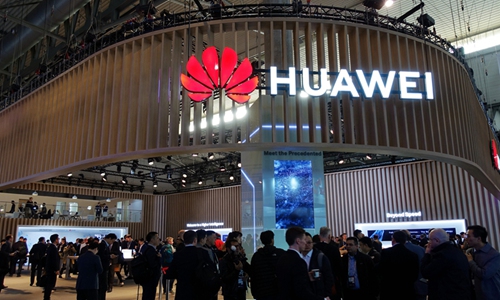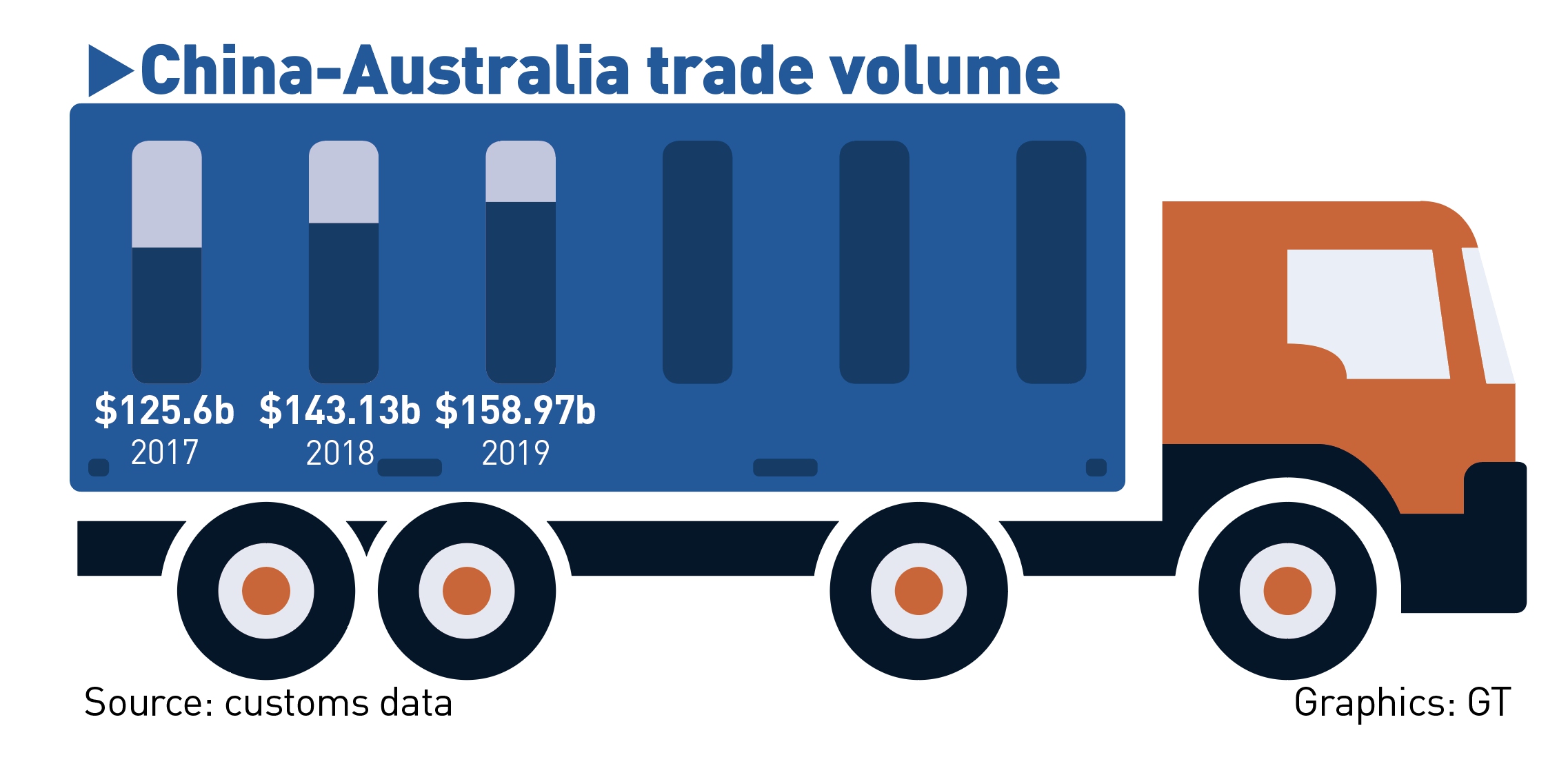Update: Australia's a small market and has never been Huawei's particular focus: company executive
By GT staff reporters Source: Global Times Published: 2020/9/22 19:52:22
Huawei's Australia strategic pullback to increase pressure on Canberra

People visit the booth of Chinese tech company Huawei at the 2019 Mobile World Congress (MWC) in Barcelona, Spain, Feb. 25, 2019. (Xinhua/Guo Qiuda)

Source: customs data
Huawei executive said Tuesday that Australia is a small market and has never been Huawei's particular focus, responding to Australian layoffs.
Huawei's strategic pullback in Australia, as revealed by local media on Tuesday, will put additional pressure on the US' close ally, whose economy has already taken a hit from its hostility toward China, industry observers said.
The Chinese tech giant has cut more than A$100 million ($71.88 million) in its commitment to local research and development (R&D) and will have slashed 1,000 jobs by next year, the Australian Financial Review reported Tuesday, citing Jeremy Mitchell, Huawei's chief corporate affairs officer for Australia.
"Australia is a small market and has never been a particularly focused market for Huawei. Huawei has always been inclined to high-quality resources to high-quality customers, using our limited resources to serve the needs of our customers, to enable customers to succeed. As for a specific market, we will make appropriate adjustments according to the market conditions," Wang Tao, Executive Director of the Board and Chairman of the Investment Review Board told the Global Times on Tuesday during the Huawei Connect 2020.
"There is simply no doubt that everybody loses in a cyber war - but nobody loses quite as much as Australia, which is caught between its major military and trading partners," Mitchell said.
Huawei's reduced involvement in Australia, once considered a pivotal market for the Chinese telecom behemoth, is an obvious choice on Huawei's part since Australia - a close follower of the US — announced a 5G network ban on Huawei in 2018, analysts said.
The company's investment in the Australian market has benefited local operators and consumers through its offerings of high-quality yet affordable network equipment and services. The politically motivated 5G ban, however, hurt the local market's potential as a rewarding investment destination, Fu Liang, a Beijing-based telecom industry analyst, told the Global Times on Tuesday.
It's reasonable for Huawei to withdraw gradually from the market, Fu said, and the resulting cuts in R&D investment and jobs will further batter the local economy.
Australia's exports to China plunged 26.2 percent year-on-year to $8.81 billion in August, Chinese customs data showed. In the first eight months of the year, its exports to China shrank 7.5 percent to $75.73 billion.
The 5G ban has resulted in Australia, once billed as an important market for Huawei, being jettisoned, said Ma Jihua, a veteran telecom industry analyst.
With Australian exporters relying heavily on the Chinese market, Huawei's investment rollback will inevitably increase pressure on Canberra, prompting interest groups within the country to weigh the consequent losses to the Australian economy and prevent bilateral ties from being held hostage by unbridled hostility, Ma told the Global Times on Tuesday.
It won't be easy for Australia to find an equally capable 5G solution provider to fill the gap being left by Huawei, according to Fu, who said Australia's plight ought to be a wake-up call for the other members of the Five Eyes alliance, especially Canada and New Zealand, against following the US at the cost of their own interests.
It's increasingly the case that the Trump administration's reckless clampdown on Chinese technologies is distancing the US from its allies, Fu commented, citing Germany and France, which haven't moved to rip out Huawei equipment.
In the case of the UK, a U-turn led to a ban on new Huawei 5G kit that won't be enforced until the end of the year, or after the November election. This could be seen as an indication of the UK's continued equivocation, the analyst said.